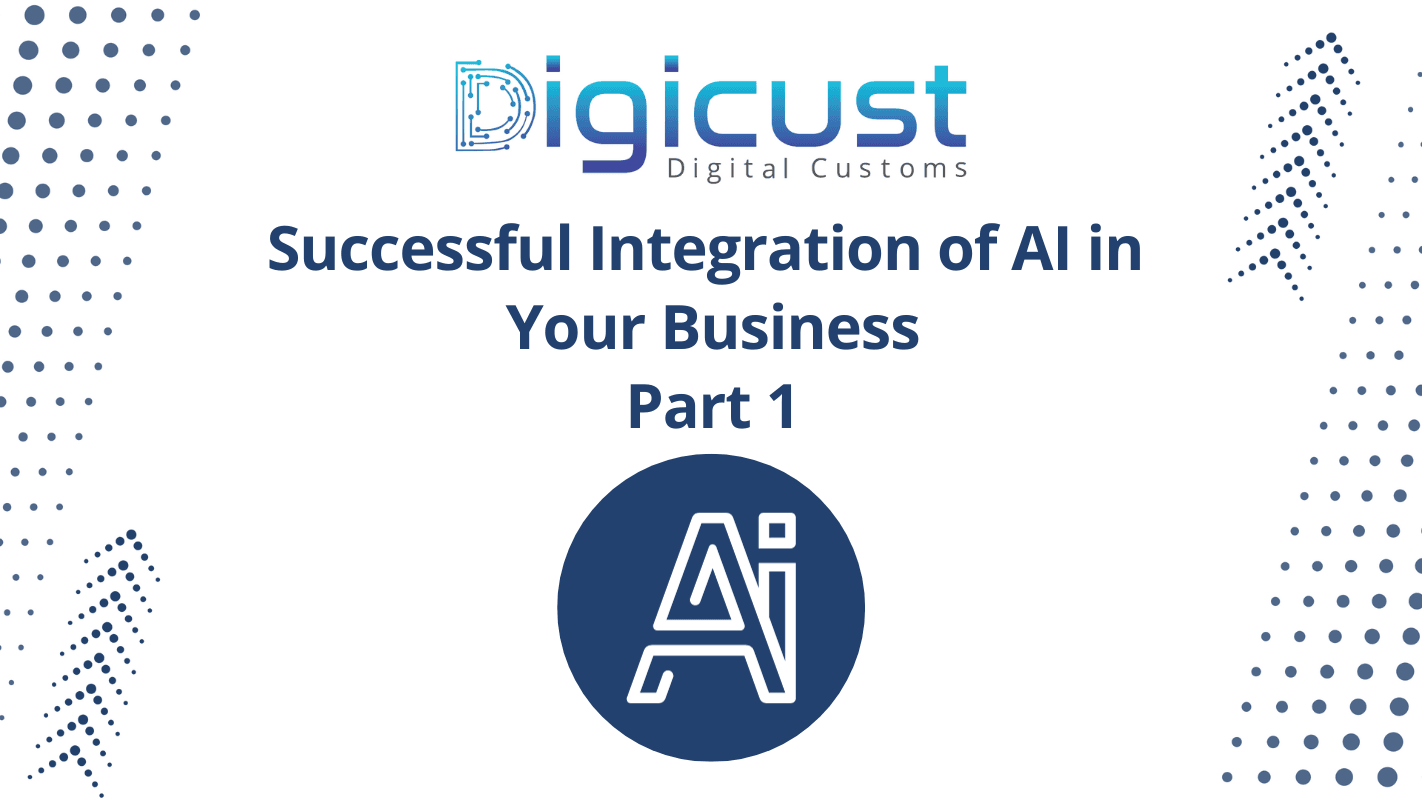Successful Integration of AI in Your Business Part 1

Step 1: Identify the business areas that can benefit from AI.
To take full advantage of this disruptive technology, it is crucial to identify the different business areas where AI can have a significant impact. Below you will find some of these areas:
customer service:
- Improve your customer service while saving time and resources through the use of chatbots and automated responses.
sales and marketing:
- Use AI to better understand your customers, optimise marketing campaigns and increase sales efficiency, for example through lead scoring and automated follow-ups.
operations management:
- Increase the efficiency of your operational processes through process automation and predictive maintenance.
product development:
- Use AI tools to conduct extensive market analysis and gather customer feedback to develop higher quality products.
Finance and risk management:
- Automate reporting, fraud detection and risk analysis with AI support.
human resources:
- Benefit from AI in automating the recruitment process and predicting employee turnover.
Each of these areas brings specific requirements and opportunities through the application of AI. Identifying the business areas that can benefit from AI is critical to identifying the best ways to integrate AI into your business structure.
Step 2: Current trends in AI technology. AI technology is constantly evolving, and it's important to be aware of current trends. Here are some of the latest developments:
Democratisation of AI: AI technology is becoming accessible to a wider user base, including those without technical expertise.
Generative AI: Generative AI tools are experiencing rapid growth and can create entirely new digital content.
Ethics and explainable AI: AI ethics is gaining importance to combat bias and injustice in automated decision-making systems.
Augmented collaboration: In 2023, humans will increasingly collaborate with robots and intelligent machines.
AI in personalisation and healthcare: AI offers personalisation opportunities and can improve healthcare.
Regulation and AI ethics: The regulation of AI and guidelines to ensure just AI practices are increasingly discussed.
Natural Language Processing (NLP): NLP is becoming an in-demand skill in the job market.
Future of AI technology: The AI industry is expected to be worth $190 billion by 2030.
Step 3: Relevance and benefits of AI for businesses.
Integrating artificial intelligence (AI) into business processes offers numerous benefits:
Efficiency and automation: automation reduces workload, allowing employees to focus on more strategic tasks.
Data analytics and decision making: AI analyses large amounts of data and provides valuable insights for better decision making.
Customer engagement: Personalised marketing strategies and improved customer service processes increase customer engagement.
Product innovation: AI enables the development of innovative products and services.
Cost savings: Operating costs are reduced through efficiency gains and automation.
Risk management: AI supports the identification and assessment of risks.
Global reach and scalability: Companies can scale their offerings globally and provide consistent experiences.
Talent acquisition and management: AI enables automated recruitment processes and effective talent management.
Sustainability: AI helps optimise resources and processes to achieve sustainability goals.
Competitive advantage: AI enables companies to respond faster to market changes and provide better customer experiences.
The relevance and benefits of AI for businesses cannot be overlooked. It enables to increase operational efficiency, make better decisions and drive business success. In the next sections, we will discuss how you can select and implement the right AI solution for your business to reap these benefits.
News from our Blog
Learn about customs clearance, foreign trade, our product updates and our latest achievements.




































